Dispersed camping trips or other remote campsites mean camping without bathrooms or other facilities.
A campsite or campground without facilities can be intimidating, but planning and preparation will make your trip more enjoyable.
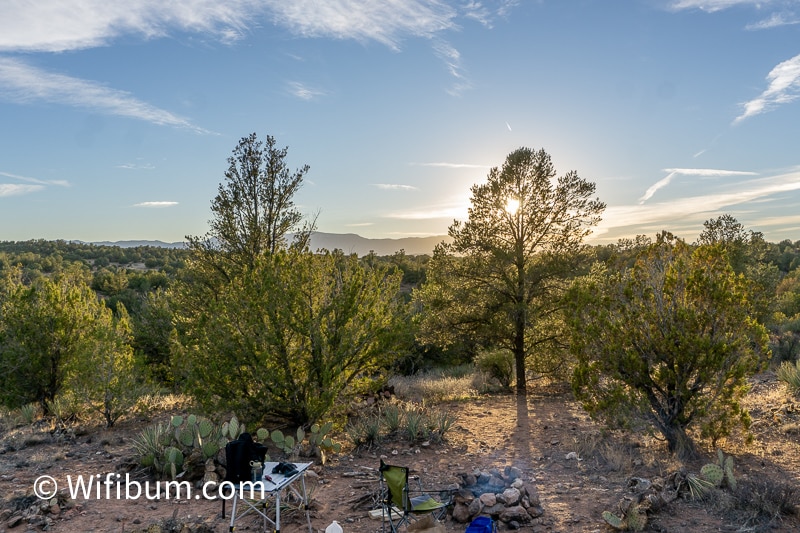
Camping Without Bathrooms: Where Do You Go #2?
Research Your Campsite
Before you leave, research the campsite to determine if any facilities are available, such as a pit toilet or port-a-potty. It’s rare for paid campgrounds not to have some form of bathroom unless it’s self-pay and in a remote area.
Sometimes, even if there are facilities, it’s nice to have your own.
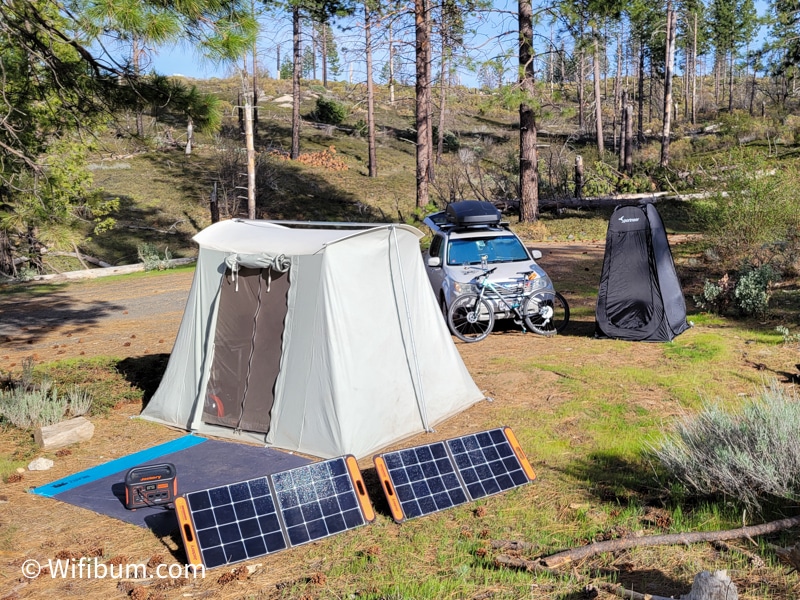
Lastly, check your surrounding areas for gas stations, trailheads, or other places that may have a bathroom.
Portable Toilet
Portable toilets come in a variety of options. There is the basic 5-gallon bucket system to more advanced composting toilets.
The right one for you will depend on few things:
- How often do you go camping without facilities?
- Length of trip
- Your Budget
- Number of people in your party
I typically bring my DIY portable camp toilet for one or two people.
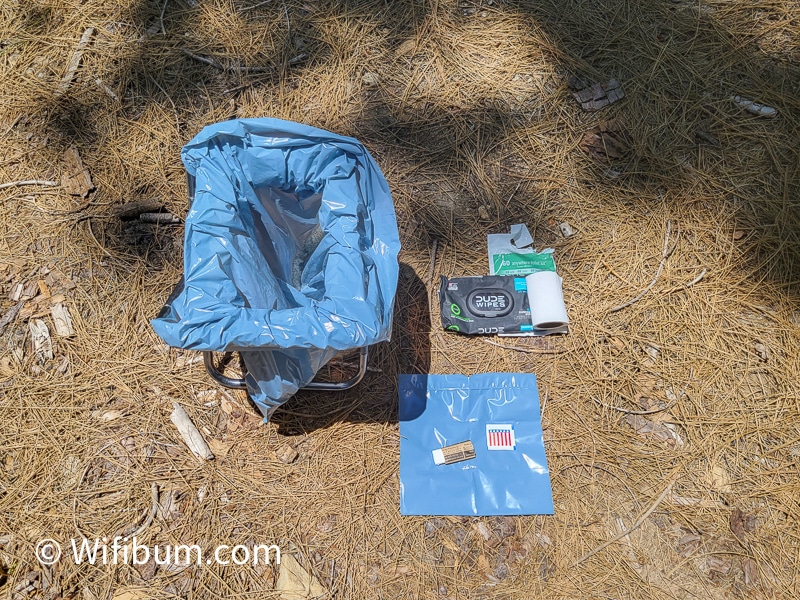
Digging a Hole: Pooping in the Woods
Most outdoorsy folks have peed in the woods, but have you dug a hole and pooped in it?
It’s a unique experience that everyone should enjoy. However, there are some essential things to know before you start digging cat holes around every campsite.
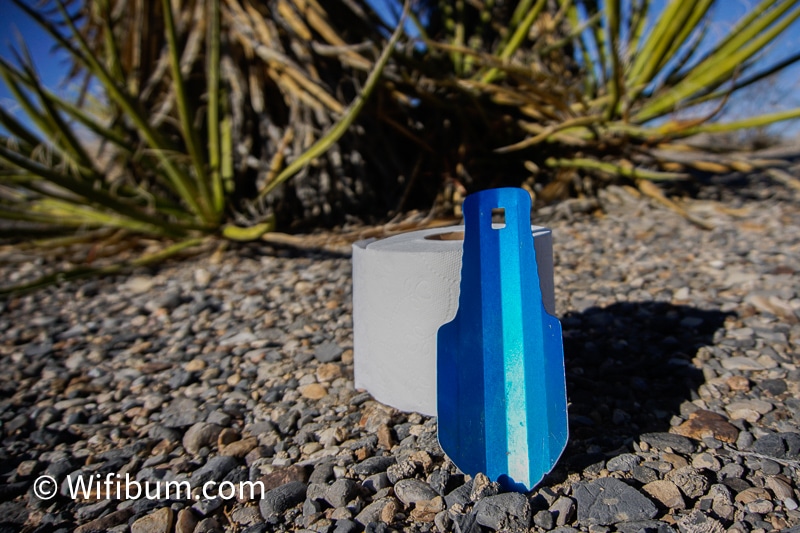
Most people have read that you should dig a hole at least 6 inches deep, but there several other things to understand.
Not All Places Allow You to Dig Holes
Not all places allow digging holes. This is true in sensitive areas, popular areas, and areas where there is a risk of it being washed away (such as The Narrows in Zion National Park).
In those cases, you can use a WagBag, which is a self-contained toilet in a bag that you pack out with you.
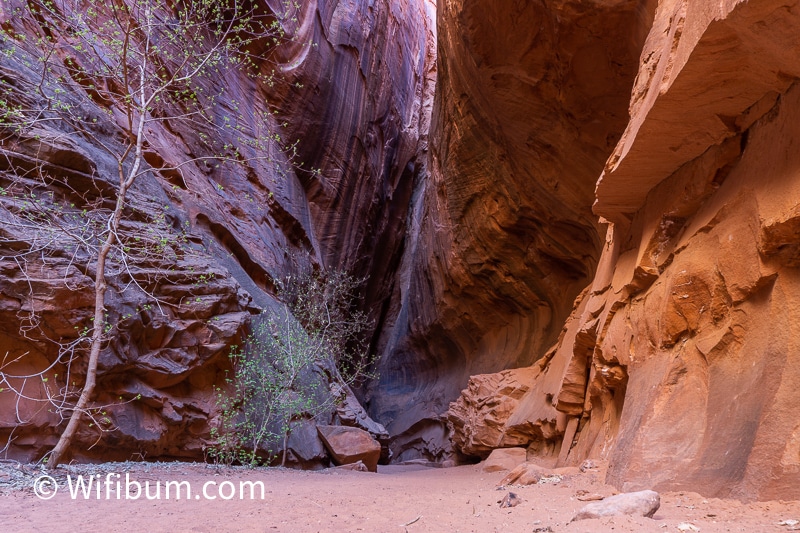
Never Go #2 Near Water
Stay at least 200ft away from water sources such as creeks, rivers, and lakes to reduce the risk of contamination.
In addition, you should try to go that same distance away from any campsites.
Pack Out Your Toilet Paper
It’s a common misconception that you can just bury your toilet paper with your waste and the cover it up. In many cases, this is a poor solution because toilet paper takes up a lot of space in the hole you dug.
One of the most common pieces of trash seen in dispersed campsites is loose toilet paper.
Many campers dig a hole, do their business, and then put their toilet paper on top and “bury it.” The problem is, the toilet paper is very close to the surface.
It takes one moderate rain to uncover it and start blowing around in the wind.
Instead, bring a large ziplock bag or similar bag to put it in and pack it out.
Know Your Environment
The reason digging a hole is an acceptable method is because your waste will compost over time. However, there needs to be moisture in the soil to compost.
High and dry environments are not the best places to dig holes.
What to Bring: Campsites with No Toilets
Campsites with no toilets typically means no running water or other amenities.
Here’s what to bring.
Personal Hygiene and Sanitation
Maintaining proper hygiene is important on dispersed camping trip.
Hand Sanitizer
This is the easiest solution to kill germs and bacteria and you don’t need running water to sanitize your hands.
However, an abundance of clean water will also be useful.
Clean Water
Camping without facilities means you’ll need to bring a lot more camping water than you are used to.
You’ll be consuming water by drinking, cooking, and cleaning up.
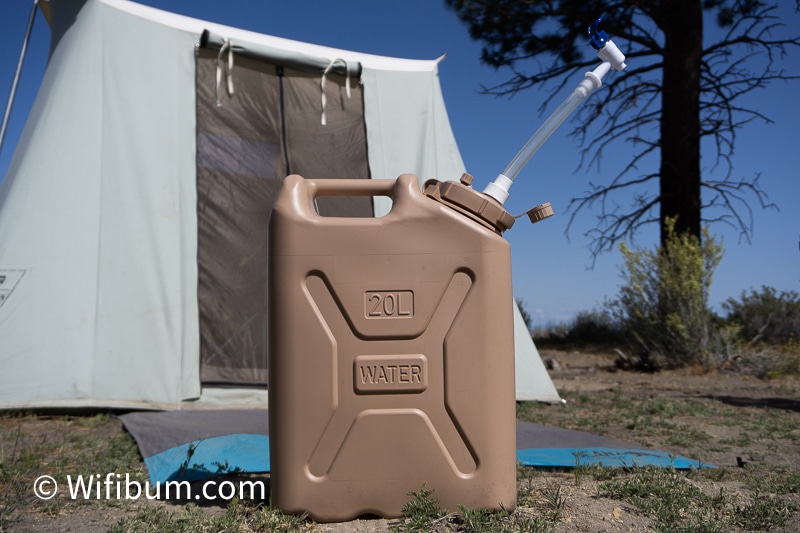
You can read my full Scepter water container review here and why I enjoy it.
Soap for Camping
Bringing environmentally friendly soap is a good idea to avoid contaminating the ground.
I typically opt for Dr. Bronners soap.
Privacy Shelter as a Bathroom
Bringing a bathroom tent in the form of a pop up shelter can provide some normalcy to your primitive camping experience. Combine this with a portable camp toilet and wag bags, and you basically have a 5-star camping bathroom.
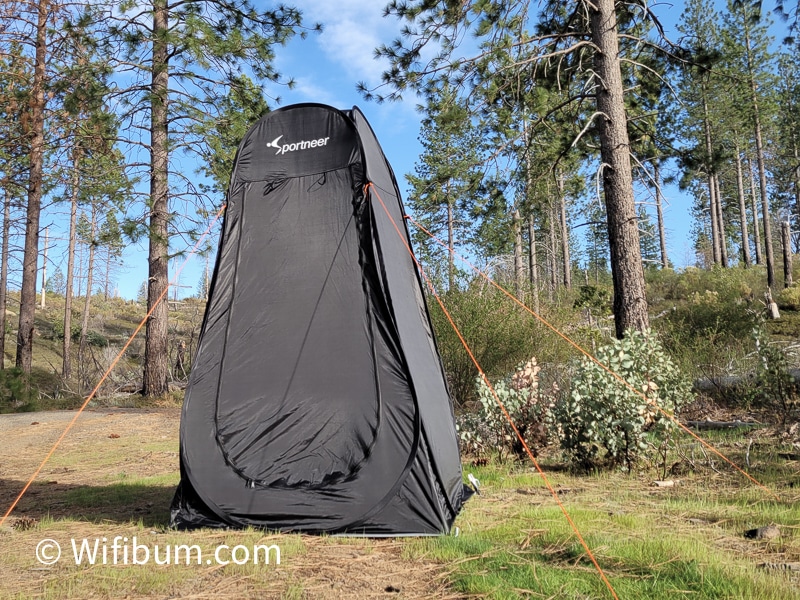
For extended trips, I would recommend something similar to this over one without poles.
Final Thoughts
If you’re planning to camp in remote or primitive locations, you will find yourself without access to bathroom facilities.
It doesn’t have to be a problem. It can be an opportunity to enjoy a more immersive nature experience. With the right knowledge and preparation, you can properly take care of human waste and minimize your environmental impact.


